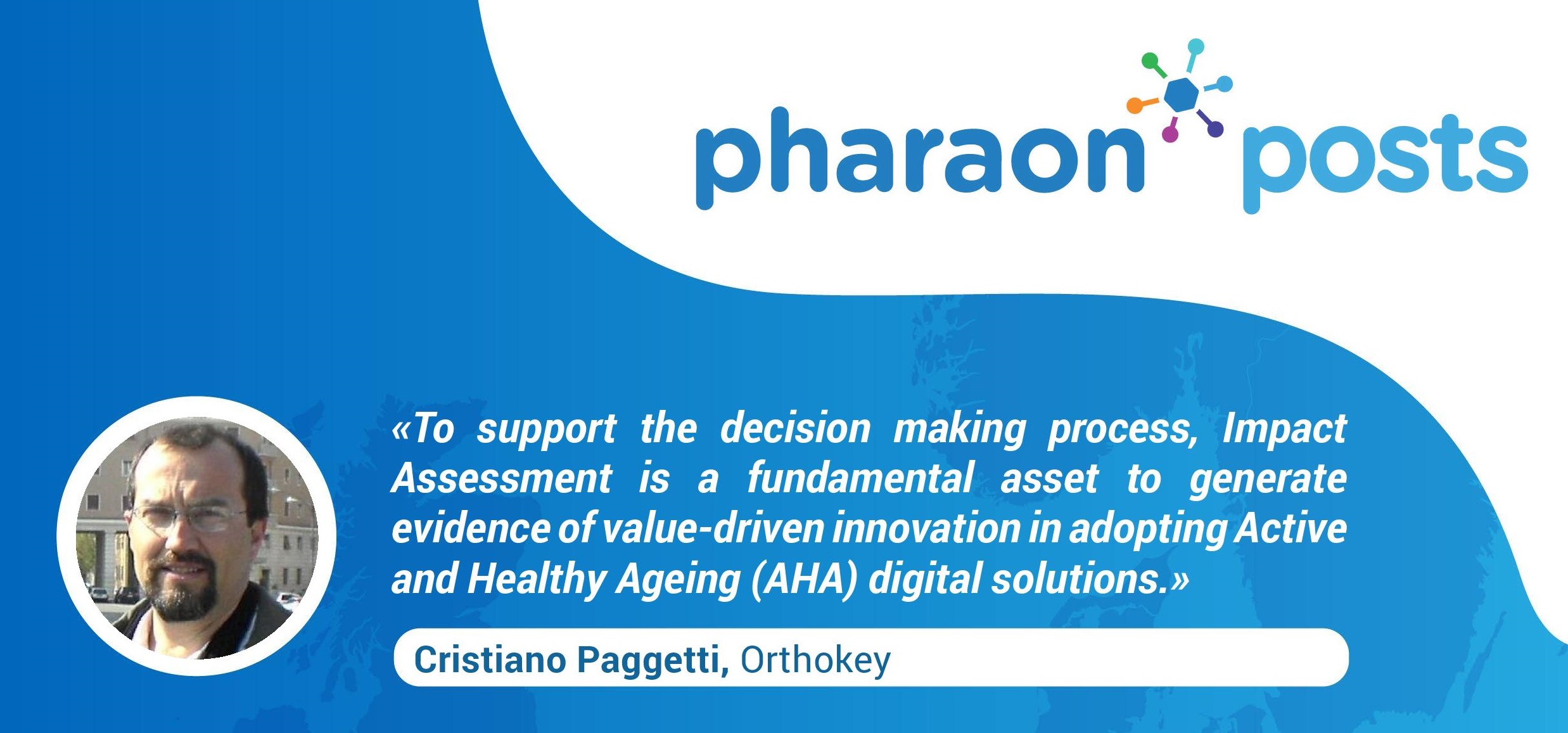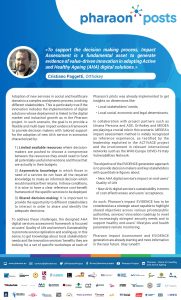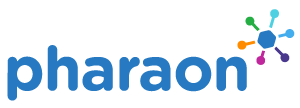
19 Oct Pharaon Posts! Cristiano Paggetti, Impact Assurance Manager
 Adoption of new services in social and healthcare domain is a complex and dynamic process, involving different stakeholders. This is particularly true if the innovation includes the implementation of digital solutions whose deployment is linked to the digital market and industrial growth as in the Pharaon project. In such scenario, the goal is to provide a flexible and multi-layer impact evidence framework to provide decision makers with tailored support for the adoption of new AHA service in scenarios characterized by:
Adoption of new services in social and healthcare domain is a complex and dynamic process, involving different stakeholders. This is particularly true if the innovation includes the implementation of digital solutions whose deployment is linked to the digital market and industrial growth as in the Pharaon project. In such scenario, the goal is to provide a flexible and multi-layer impact evidence framework to provide decision makers with tailored support for the adoption of new AHA service in scenarios characterized by:
- Limited available resources where decision-makers are pushed to choose a compromise between the resources they would need to fund all potentially useful interventions and those that are actually in their budgets.
- Asymmetric knowledge in which those in need of a service do not have all the required knowledge to make an informed decision which would maximize their returns. In these conditions, it is wise to have a clear reference cost-benefit framework of the specific services to be deployed .
- Shared decision-making: It is important to provide the opportunity to different stakeholders to interact in order to share and identify the adequate decisions.
To address these challenges, the designed AHA digital services assessment framework is focused on users’ Quality of Life and service’s Sustainability to promote service replication and scaling-up. In this sense, to get knowledge about local stakeholders’ needs and the innovation services’ benefits they are looking for, a set of specific workshops at each of Pharaon’s pilots was already implemented to get insights on dimensions like:
- Local stakeholders’ needs,
- Local social, economic and legal determinants.
In collaboration with project partners such as Umana Persona and AGE, Orthokey and MEDEA are playing a crucial role in this scenario. MEDEA’s impact assessment method is widely recognized as reference experience, as testified by the leadership exploited in the ACTIVAGE project and the involvement in relevant international networks such as the WHO-Europe COVID-19 Italy Vulnerabilities Network.
The objective of the EVIDENCE generation approach is to provide decision makers and key stakeholders with quantitative figures about:
- New AHA digital service’s impact on end-users’ Quality of Life
- New AHA digital service’s sustainability in terms of cost effectiveness and users’ acceptance.
As such, Pharaon’s impact EVIDENCE has to be considered as a strategic asset capable to highlight shared objectives across various private/public authorities, services’ innovation roadmap to meet the increasingly stringent security needs and to support healthy end-users’ lifestyles and health parameters remote monitoring.
Pharaon Impact Assessment and EVIDENCE generation are already starting and more information in the near future. Stay tuned!!!
Download “Pharaon Posts! Cristiano Paggetti” as .pdf (click here)

